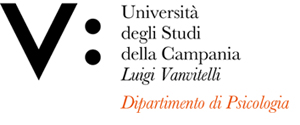Silvia GALDI
Insegnamento di PSICOLOGIA SOCIALE
Corso di laurea in SCIENZE E TECNICHE PSICOLOGICHE
SSD: M-PSI/05
CFU: 8,00
ORE PER UNITÀ DIDATTICA: 56,00
Periodo di Erogazione: Secondo Semestre
Italiano
| Lingua di insegnamento | ITALIANO |
| Contenuti | Questo insegnamento prende in rassegna la ricerca e le teorie della psicologia sociale. Centrale e' l'idea che gli esseri umani non sono entita' isolate che elaborano informazioni come computer, ma che sono animali sociali coinvolti in complesse relazioni sociali, motivati da scopi e influenzati da concezioni e norme socialmente condivise. Si analizzeranno sotto questa prospettiva la percezione e la cognizione sociale (i processi cognitivi), gli atteggiamenti e i comportamenti diretti ad altri individui o gruppi. Si esplorereanno i fenomeni quali il conformismo, l'influenza sociale, gli stereotipi, il pregiudizio e il comportamento pro- o anti-sociale. Nell'analizzare questi fenomeni, si vedrà anche come le teorie riguardanti il comportamento umano possano essere testate attraverso esperimenti rigorosi condotti in laboratorio o sul campo. |
| Testi di riferimento | M. Hewstone, W. Stroebe, K. Jonas, Introduzione alla psicologia sociale. Bologna: Il Mulino, pp. 548 (2015; quinta edizione). Eescluso capitolo XII. |
| Obiettivi formativi | L'insegnamento ha lo scopo di fornire una panoramica approfondita e aggiornata delle conoscenze nell'ambito della psicologia sociale. Grazie alle lezioni e allo studio individuale, ci si aspetta che gli studenti e le studentesse conseguano i seguenti risultati formativi: |
| Prerequisiti | Capacità concettuali e conoscenze generalmente possedute da studenti con Diploma di Maturità. |
| Metodologie didattiche | L'insegnamento si svolge principalmente tramite lezioni frontali (44 ore). E’ prevista la partecipazione attiva degli studenti e delle studentesse che frequentano regolarmente il corso ad attività di approfondimento (esercitazioni, discussioni e partecipazione a ricerche fuori aula) finalizzate a favorire la comprensione del processo della ricerca in psicologia sociale sia dalla prospettiva del partecipante che da quella del ricercatore (12 ore). |
| Metodi di valutazione | A partire dalla sessione di esami di giugno 2019, per TUTTI gli studenti (in corso e fuori corso) l'esame sarà centrato sui contenuti del presente insegnamento (si vedano i testi in bibliografia). |
| Altre informazioni | Per tutto il materiale relativo all'insegnamento e utilizzato durante le lezioni (incluse le slides ed eventuali filmati), si invitano gli studenti a consultare la cartella nella sezione Materiali dei Docenti relativa all’anno accademico in cui si segue il corso. |
| Programma del corso | L'insegnamento intende fornire agli studenti e alle studentesse le nozioni di base della psicologia sociale. In particolare, si affronteranno i seguenti argomenti: |
English
| Teaching language | Italian |
| Contents | This course provides students with a broad overview of social psychological research and theorizing. Central to the course is the idea that human beings are not isolated entities who process information like computers, but social animals engaged in a complex network of social relations, driven by goals and motivations and constrained by cultural worldviews. We will analyze social perception and cognition (social cognition), attitudes towards individuals (including ourselves) and groups. We will examine why people conform, how they influence each other, why they firmly hold stereotypes and prejudice, and why they engage in pro- or antisocial behaviors. By analyzing these phenomena we will see how theories of human behavior can be tested rigorously via laboratory experiments and field studies. |
| Textbook and course materials | M. Hewstone, W. Stroebe, K. Jonas, Introduzione alla psicologia sociale. Bologna: Il Mulino, pp. 548 (2015; fifth edition). Except cap. XII. |
| Course objectives | The course aims at offering an in-depth and updated overview of knowledge in the field of social psychology. The expected educational goals of attending to classes and of the individual study are: |
| Prerequisites | Basic conceptual skills and knowledge typically held by students with a High School degree. |
| Teaching methods | Classes will be conducted mainly through a classic lecture format (44 hours). In addition, students who attend the course regularly will be asked to participate in activities (exercises, discussions, experiments that will be conducted outside of the classroom) aimed at allowing students to understand the experimental process in social psychology both from the perspective of the participant and the researcher (12 hours). |
| Evaluation methods | From June 2019, for ALL students, the exam will cover the full content of the present course (see books in References). |
| Other information | To retrieve all materials related to the course (including slides and video clips), students are requested to visit the teacher’s folder in Material section corresponding to the academic year in which the course is attended. |
| Course Syllabus | This course intends to provide students with the basic notions of Social Psychology. Specifically, the following topics will be addressed: |








